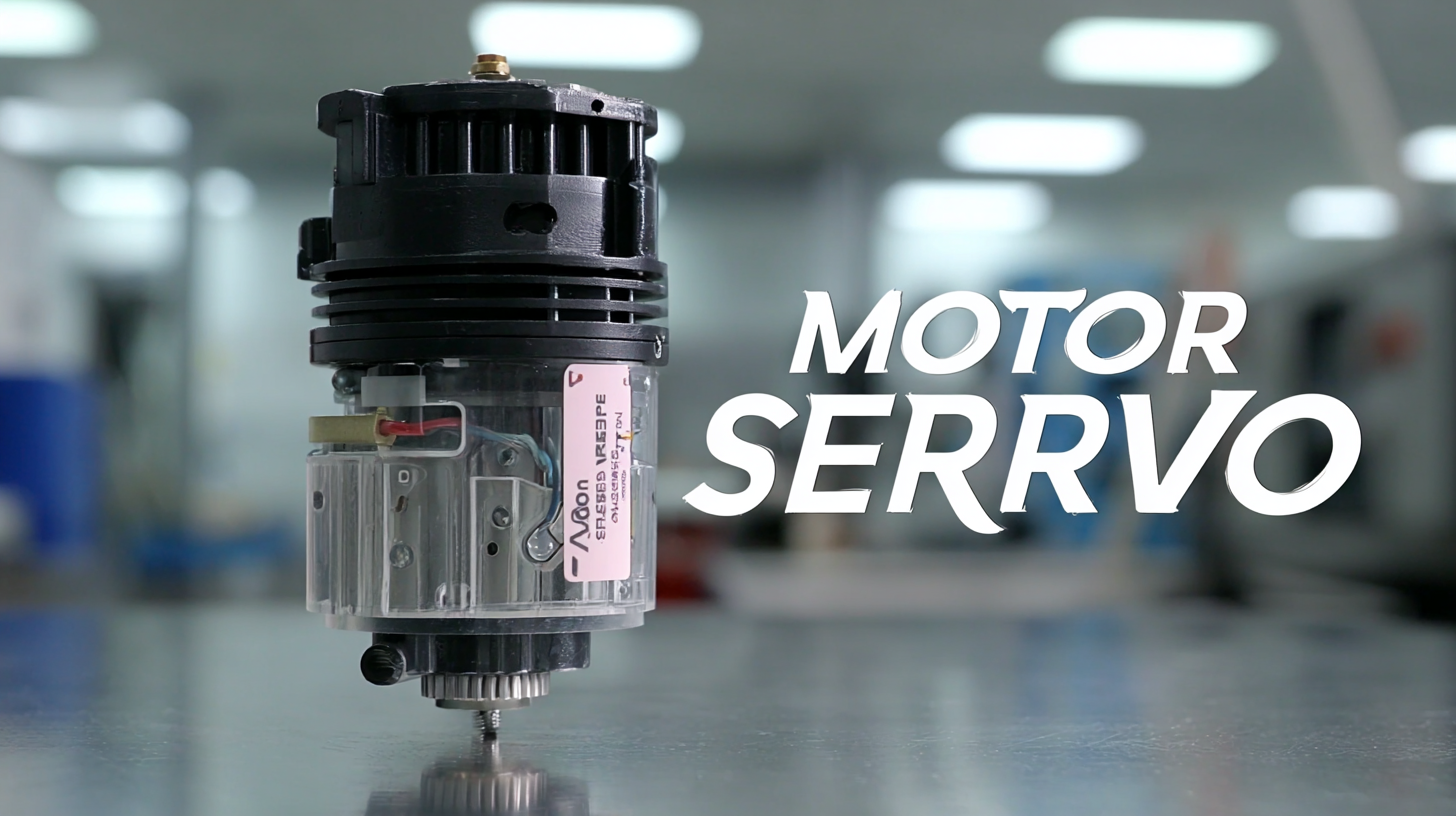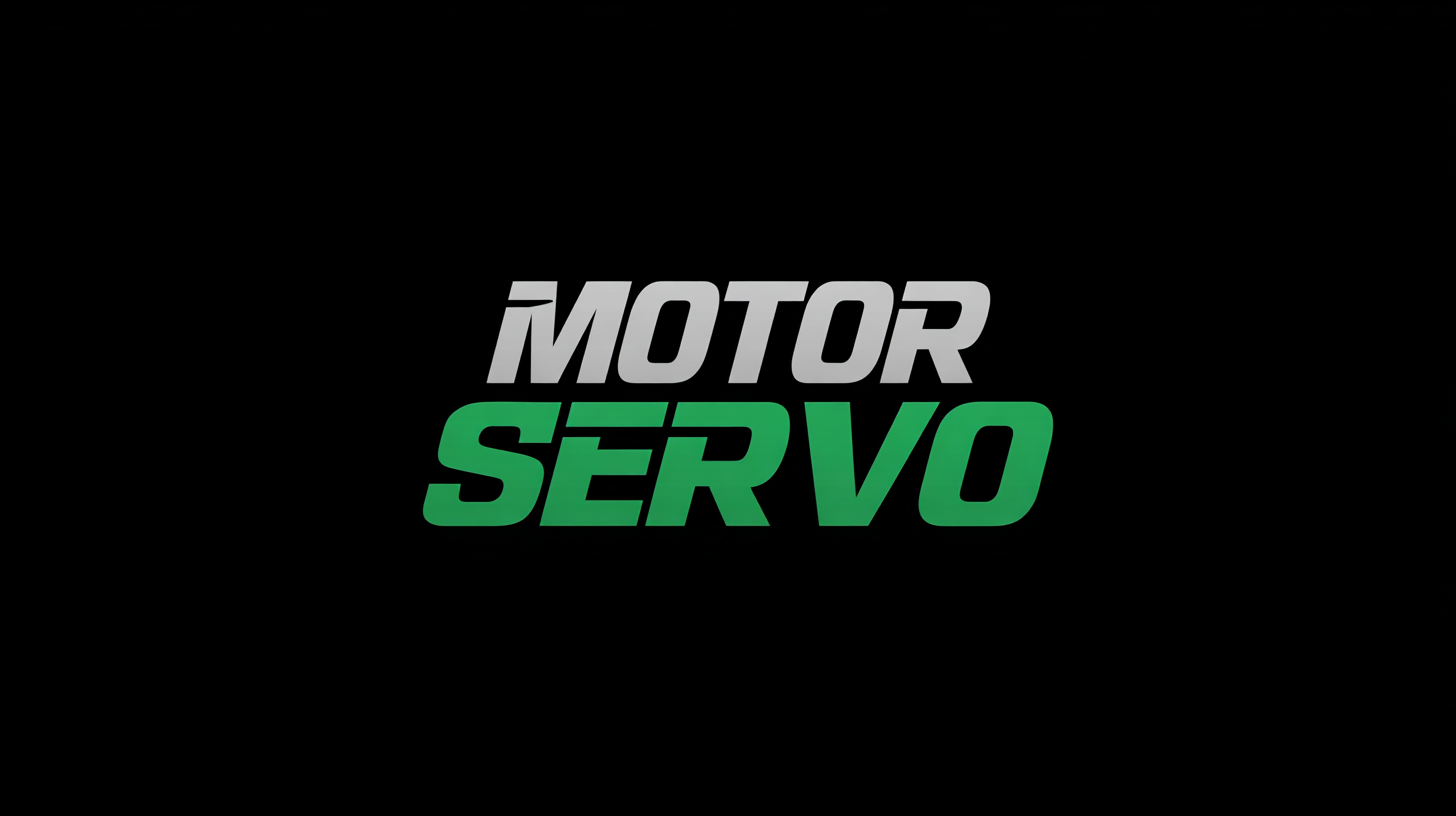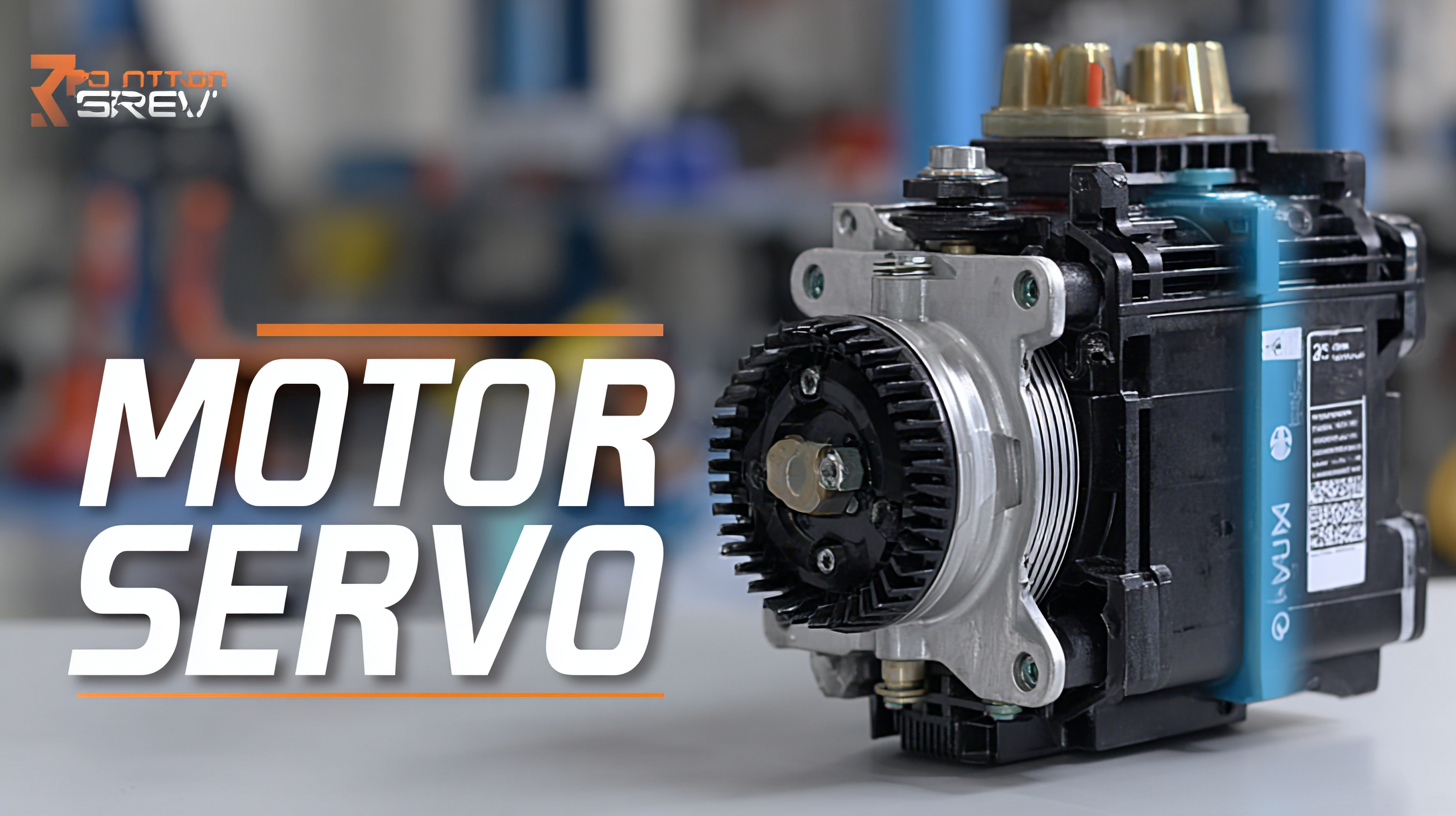
7 Proven Benefits of Choosing the Best Motor Servo for Your Business Needs
In today's rapidly evolving industrial landscape, choosing the right motion control system can significantly impact operational efficiency and overall productivity. A Motor Servo, which typically boasts high precision and responsiveness, plays a crucial role in various applications, from robotics to automation systems. According to a recent market analysis by Fortune Business Insights, the global servo motor market is expected to grow from $7.5 billion in 2021 to $11.5 billion by 2028, reflecting a compound annual growth rate (CAGR) of 6.5%. This surge highlights the increasing reliance on advanced motor technologies in achieving optimal performance and competitive advantages. As businesses strive to enhance their manufacturing processes, understanding the seven proven benefits of integrating the best Motor Servo tailored to specific operational needs is essential for success in this dynamic environment.

The Importance of Selecting the Right Motor Servo for Your Industry
Selecting the right motor servo is crucial for optimizing operational efficiency and achieving superior performance in various industries. Motor servos serve as the backbone of automation, playing a pivotal role in applications ranging from robotics to manufacturing processes. By choosing the most suitable motor servo for your specific needs, you can ensure enhanced precision, speed, and reliability. This decision directly impacts productivity and can lead to significant cost savings over time, making it a critical factor for businesses aiming for growth and competitiveness.
Moreover, different industries have unique requirements, and understanding these nuances is essential when selecting a motor servo. For instance, in the automotive sector, the demand for precise motion control and quick response times is paramount. In contrast, the textile industry may prioritize energy efficiency and adaptability to various fabric types. By tailoring your choice of motor servo to match the specific demands of your industry, you not only enhance the overall functionality of your systems but also position your business to respond better to market changes and customer expectations. Investing time and resources in selecting the right motor servo can lead to transformative benefits for your operations.

Key Features to Look for in High-Performance Motor Servos
Choosing the right motor servo for your business needs is crucial, especially in precision-driven industries. High-performance motor servos offer several key features that ensure reliability and efficiency in operations. With the global servo motor market projected to grow at a CAGR of 6.9%, reaching an estimated USD 13.52 billion by 2030, understanding what makes a servo motor high-performing is more important than ever. Features such as advanced real-time field bus architectures and AI-powered tuning capabilities are essential. They facilitate precise control of angular or linear positions, speeds, and accelerations, thereby significantly enhancing automation processes.
Moreover, the integration of sensor data for performance optimization in CNC machine tools showcases the critical role that high-quality motor servos play in achieving high precision and accuracy in manufacturing. Precision in motion control is vital; even slight deviations can impact the overall efficiency of operations. As industries increasingly rely on servo motors for tasks ranging from robotics to electric vehicles, investing in the best motor servo equipped with high-performance features ensures that businesses can overcome challenges and achieve their operational goals effectively.
How Motor Servos Enhance Efficiency in Automated Processes
In today's fast-paced industrial landscape, the role of motor servos in enhancing efficiency within automated processes cannot be overstated. Motor servos are sophisticated control devices that allow precise movement and positioning in machinery. This precision is vital for tasks that require high repeatability and accuracy, ultimately leading to reduced downtime and fewer errors in production lines. By investing in the best motor servos, businesses can streamline operations, minimize waste, and improve overall productivity.
Moreover, motor servos play a critical role in enabling real-time feedback and adaptive control. This capability allows machines to adjust to varying loads and conditions, ensuring that processes remain smooth and uninterrupted. When integrated into automation systems, motor servos facilitate faster cycle times and improved responsiveness. As a result, businesses not only enhance their operational efficiency but also significantly bolster their competitive advantage in the marketplace. The transition to automated systems equipped with advanced motor servos marks a strategic move towards the future of manufacturing, where efficiency and precision are paramount.
Cost-Benefit Analysis: Investing in Quality Motor Servos
When it comes to investing in motor servos for your business, a cost-benefit analysis can highlight the long-term advantages of choosing quality over quantity. While cheaper options may seem attractive at first glance, they often lead to higher operational costs due to frequent replacements and maintenance issues. By opting for high-quality motor servos, businesses can reduce downtime and enhance productivity, ensuring that their operations run smoothly without the disruption caused by equipment failure.

Furthermore, premium motor servos typically offer advanced features and superior performance, which can translate into increased efficiency and reliability. This translates to cost savings in the long run, as more efficient machines consume less energy and generate less waste. Investing in high-quality motor servos ultimately aligns with a business’s growth strategy, providing a solid return on investment through enhanced performance metrics and reduced lifetime costs. By prioritizing quality in their motor servo selection, businesses can position themselves for sustained success in their respective markets.
Future Trends: The Role of Motor Servos in Industry 4.0
As we transition into Industry 4.0, motor servos are becoming indispensable for modern manufacturing processes. These advanced systems work in tandem with smart technologies, elevating automation by providing precise control over machinery. With the integration of IoT (Internet of Things), motor servos can communicate with other devices, allowing real-time data analysis to optimize productivity and reduce downtime. This capability is essential for businesses aiming to stay competitive in an ever-evolving market.
Tip: When selecting a motor servo, consider investing in models that offer compatibility with IoT platforms. This ensures that your machinery can be easily integrated into a broader smart factory environment, enabling better performance tracking and predictive maintenance.
Moreover, the future of motor servos suggests a greater emphasis on energy efficiency and sustainability. As companies increasingly focus on reducing their environmental footprint, motor servos that consume less power while maintaining performance will be crucial. By adopting these technologies, businesses can not only enhance their operational efficiency but also align with global sustainability goals.
Tip: Always check the energy ratings of motor servos before purchasing. Opt for those designed with energy-saving features that can lead to significant cost reductions over time while contributing to your sustainability initiatives.
